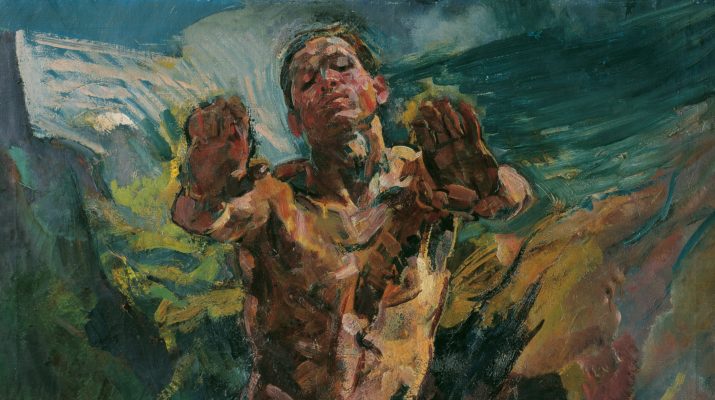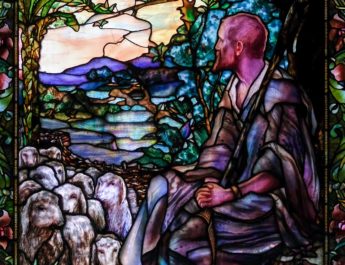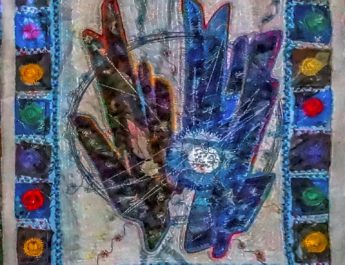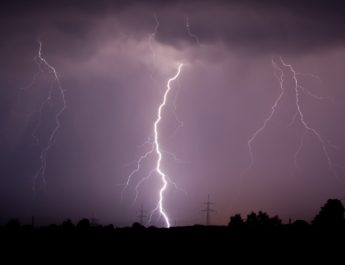Psalm 84
Narrative Lectionary
To the leader:A according to The Gittith.B Of the Korahites.C A Psalm.D
A “leader” = natsach. Properly, something that glitters from a distance. So, something that stands out, excels, has status/standing (such as a chief musician or superintendent of Temple services). This can also mean to be permanent or enduring.
B “Gittith” = Gittith. 3x in OT– all psalms. From gitti (someone from Gath); from Gath (Philistine city called Gath, meaning “wine press”); from the same as gath (wine press); from nagan (to play a stringed instrument, song, melody, make music). This is Gittith – some kind of musical notation, perhaps referring to a harp from Gath.
C “Korahites” = ben + Qorach. Literally “children of Korah.” Ben is from banah (to build or obtain children). This is son, age, child. It is son in a literal or figurative sense. Qorach is from qarach (to shave bald, perhaps frozen). This is Korah, perhaps meaning “ice,” “frost,” “hail,” or “baldness.” See https://www.abarim-publications.com/Meaning/Korah.html
D “Psalm” = mizmor. From zamar (making music; used specially of music to worship God; music with singing, singing praise, singing psalms); may be from zamar (to trim or prune). This is a melody or a psalm.
1 How lovelyE is your dwelling place,F
O LordG of hosts!H
E “lovely” = yadid. 9x in OT. Perhaps from the same as dod (beloved, love, uncle, love token; root may mean to boil). This is lovely, amiable, beloved.
F “dwelling place” = mishkan. From shakan (to settle down in the sense of residing somewhere or staying there permanently; to abide or continue). This is a place where one lives – a tabernacle, tent, or other kind of dwelling. It can also be a lair where animals live, the grave, the Temple, or the Tabernacle.
G “Lord” = YHVH. From havah (to be, become) or hayah (to come to pass, become, be). This is the name of the God of Israel, the self-existent and eternal one, the tetragrammaton. This pronunciation has been lost to time so “Lord” is generally used in its place.
H “hosts” = tsaba. From tsaba (to wage war, serve, assemble, fight, perform, muster, wait on). This is a large group of persons (used figuratively for a group of things). It implies a campaign literally as with army, war, warfare, battle, company, soldiers. Can also be used figuratively for hardship or for worship.
2 My soulI longs,J indeed it faintsK
for the courtsL of the Lord;
I “soul” = nephesh. Related to naphash (to refresh or be refreshed). This is soul, self, person, emotion. It is a breathing creature. Can also refer to appetites and desires.
J “longs” = kasaph. 6x in OT. This is to long for, be greedy, pine for. It can also mean to become pale or to fear.
K “faints” = kalah. This is to end, be finished, complete, prepare, consume, spent, or completely destroyed.
L “courts” = chatser. From chatsar (to blow a trumpet, trumpeter, to surround); from chatsotsrah (trumpet). This is an enclosure or court – a yard that is fenced in. It could also be a village or hamlet that is walled in.
my heartM and my fleshN sing for joyO
to the livingP God.Q
M “heart” = leb. May be related to labab (to encourage; properly, to be encased as with fat; used in a good sense, this means to transport someone with love; used in a bad sense, it can mean to dull one’s senses). This is the heart, courage, one’s inner self, the mind, or the will. Heart is only used in a figurative sense in the Old and New Testaments.
N “flesh” = basar. From basar (being a messenger, publish, carry preach; properly, this is being fresh, rosy or cheerful as one bearing news). This is flesh, the body, fat, skin, self, nakedness, humankind, or kin. It can also refer to private parts.
O “sing for joy” = ranan. This is a cry of joy or a joyful song. Properly, it is emitting a shrill sound, especially one of joy.
P “living” = chay. From chayah (to live or keep alive literally or figuratively). This is alive, living, lifetime. It can also be used to describe someone’s age. It can refer to animals, plants, water, or a company or congregation of people. It is life in a very broad sense.
Q “God” = El.
3 Even the sparrowR findsS a home,T
R “sparrow” = tsippor. From tsaphar (to skip about, maybe to depart). This is a little bird like a sparrow – a little bird as one that hops about.
S “finds” = matsa. This is to find, catch or acquire. It can also mean to come forth or appear. Figuratively, this can mean to meet or be together with.
T “home” = bayit. Related to “Korahites” in superscript. Probably from banah (see note C above). This is house, court, family, palace, temple.
and the swallowU a nestV for herself,
where she may layW her young,X
U “swallow” = deror. 2x in OT. From the same as deror (flowing quickly – hence flowing free, release, and liberty; pure or clear). This is the bird – a swallow.
V “nest” = qen. 13x in OT. Perhaps from qanan (to nestle, make or inhabit a nest). This is a nest or nestling. It can also refer to a room or other dwelling.
W “lay” = shith. This is to place, set, bring, appoint, consider, bring, array or look.
X “young” = ephroach. 4x in OT. From parach (to sprout, blossom, bloom, spread, flourish). This is young – used specifically for a bird’s brood.
at your altars,Y O Lord of hosts,
my KingZ and my God.AA
Y “altars” = mizbeach. From zabach (to kill, slay, offer; slaughtering an animal to offer as a sacrifice). This is an altar.
Z “King” = melek. From malak (to be or become king or queen, to rise to the throne, to be crowned; by implication, to take counsel). This is king or royal.
AA “God” = Elohim. Related to “God” in v2. See note Q above.
4 HappyBB are those who liveCC in your house,DD
ever singing your praise.EE SelahFF
BB “happy” = esher. From ashar (to go straight, lead, guide; to be level and so to be right, blessed, honest, happy). This is happy or blessedness.
CC “live” = yashab. This is to sit and so to remain and so to dwell. It is sitting for any reason – as a judge, in order to ambush, or just sitting quietly. Causatively, this can mean settling or marrying. This can also mean continue, endure, or establish.
DD “house” = bayit. Same as “home” in v3. See note T above.
EE “singing your praise” = halal. This is to be clear – it originally referred to a sound, then a color. It was to shine and then make a show or boast then to rave. In a causative sense it came to mean celebrate, give glory, sing praise, or be worth of praise. Because of the celebratory nature of the word, it could also mean to give in marriage. This is where Hallelujah comes from.
FF “Selah” = selah. From salal (to lift up, build, pile, extol, exalt; can also be used for opposing as a dam holds back water). This is to lift up or exalt. Also, “selah” in the psalms where its precise meaning is uncertain. It could be a pause in the music, a moment of silence. It could signal a change in the service or mean something akin to amen.
5 Happy are thoseGG whose strengthHH is in you,
in whose heartII are the highways to Zion.JJ
GG “those” = adam. Perhaps from adam (to be red, make ruddy); related to adamah (ground, dirt, earth). This is man, humankind, also Adam’s name. It refers to a human individual or humanity.
HH “strength” = oz. From azaz (to be strong, become fixed, be bold, prevail, be impudent; it means to be stout literally or figuratively. A Late Hebrew word). This is strength in the sense of force, majesty, praise, material and physical strength, the abstract notion of security. It can also speak of social or political power.
II “heart” = lebab. Related to “heart” in v2. See note M above. It has the same meaning.
JJ “highways to Zion” = mesillah. Related to “Selah” in v4. From salal (see note FF above). This is highway, path, step. It could be a course in a figurative sense or specifically a viaduct or staircase.
6 As they go throughKK the valleyLL of BacaMM
KK “go through” = abar. This is to pass over or cross over. It is used for transitions, whether literal or figurative. It can also mean to escape, alienate, or fail. This is the root verb from which “Hebrew” is drawn.
LL “valley” = emeq. From amoq (to be deep in a literal or figurative sense; profound). This is Vale or valley – frequently part of place names.
MM “Baca” = Baka. 1x in OT. Perhaps from bakah (to weep, complain, lament). This is Baca, a place in Israel. It may mean “weeping.”
they makeNN it a place of springs;OO
the early rainPP also coversQQ it with pools.RR
NN “make” = shith. Same as “lay” in v3. See note W above.
OO “springs” = mayan. From ayin (eye, appearance; eye in a literal or figurative sense; a fountain). This is a spring, well, or fountain. Figuratively, this is a source of contentment.
PP “early rain” = moreh. 3x in OT. From yarah (to throw, shoot, be stunned; to flow as water so figuratively to instruct or teach). This is early rain, teacher, what is taught, archer.
QQ “covers” = atah. 17x in OT. This is to wrap, cover, veil, be clad, turn aside.
RR “pools” = barakah. From barak (to kneel, bless; blessing God as part of worship and adoration; blessing humans to help them; can be used as a euphemism to say curse God). This is blessing, which implies prosperity or peace.
7 They goSS from strength to strength;TT
the God of godsUU will be seenVV in Zion.WW
SS “go” = halak. This is go, come, walk. It is walk literally and figuratively and includes people and animals. It can be used figuratively for one’s moral life – how we walk according to God’s way or against it. It can also refer to the walk of life as in the course one’s life takes, the choices we make, etc.
TT “strength to strength” = chayil + el + chayil. Chayil is from chul (to be firm, strong, prosperous; to endure). This is strength, wealth, ability, activity. It can refer to soldier or a company of soldiers as well as goods. It is a force of people, means, or goods. It can speak of valor, virtue, or strength.
UU “God of gods” = El + Elohim OR el + Elohim. If this is “God of gods,” it would correspond to “God” in v2 (see note Q above) and “God” in v3. See note AA above. Alternately, it could mean “to God” or “before God.”
VV “seen” = raah. This is to see in a literal or figurative sense so stare, advise, think, view.
WW “Zion” = Tsiyyon. Related to tsyiyyun (signpost, monument); from tsavah (to charge someone, to command, order); from the same as tsiyyah (dryness drought); from a root meaning parched as desert, dry land. Zion can refer to a mountain in Jerusalem as well as another name for Jerusalem itself or the people.
8 O Lord GodXX of hosts, hearYY my prayer;ZZ
XX “God” = Elohim. Same as “God” in v3. See note AA above.
YY “hear” = shama. This is to hear, call, consent, or consider. It implies listening intelligently, giving attention, and, because of these two factors, obedience and action are often implied.
ZZ “prayer” = tephillah. From palal (to judge for oneself or in an official capacity; to pray or make supplication, to entreat). This is prayer or intercession. It can also be a hymn.
give ear,AAA O GodBBB of Jacob!CCC Selah
AAA “give ear” = azan. Perhaps from ozen (ear, hearing, audience, show; properly, broadness – applied to its ear in reference to its shape). Properly, this is to expand or broaden one’s ear i.e. listen intently, pay attention, heed.
BBB “God” = Elohim. Same as “God” in v3. See note AA above.
CCC “Jacob” = Yaaqob. From the same as aqeb (heel, hind part, hoof, rear guard of an army, one who lies in wait, usurper). This is Isaac’s son and his descendants. The name means heel-catcher or supplanter.
9 BeholdDDD our shield,EEE O God;FFF
look onGGG the faceHHH of your anointed.III
GGG “look on” = nabat. This is to behold, look at intently, consider, or scan. It can mean to have respect or regard someone favorably.
HHH “face” = paneh. From panah (to turn, face, appear). This is face in a literal or figurative sense. It could be face, presence, anger, respect. It can also be used of God to indicate divine favor or presence.
III “anointed” = mashiach. From mashach (to smear or anoint; to run oil on, to consecrate). This is the anointed or consecrated one. So, it could refer to a king, priest, or saint. It is also the root of the word “messiah.”
10 For a dayJJJ in your courts is betterKKK
than a thousandLLL elsewhere.
JJJ “day” = yom. Root may mean being hot. This is the day in a literal or figurative sense. It can also mean birth, age, daylight, continually or other references to time.
KKK “better” = tob. From tob (to be pleasing, to be good). This is good, beautiful, pleasant, agreeable, bountiful, at ease. This word is used for goodness as a concept, a good thing, a good person. This can refer to prosperity and welfare as well as joy, kindness, sweetness, and graciousness. So, this is ethically good, but also enjoyably good.
LLL “thousand” = eleph. Perhaps from the same as eleph (herd, cattle); from alaph (to learn, speak, associate with). This is thousand.
I would rather beMMM a doorkeeperNNN in the house of my GodOOO
than livePPP in the tentsQQQ of wickedness.RRR
MMM “would rather be” = bachar. This is to choose, appoint, try, excellent.
NNN “doorkeeper” = saphaph. 1x in OT. From saph (door, threshold); from the same as saph (basin, cup, door, gate, threshold). This is a doorkeeper or one who guards the threshold.
OOO “God” = Elohim. Same as “God” in v3. See note AA above.
PPP “live” = dur. 1x in OT. This is to move around in a circle, pile up, dwell.
QQQ “tents” = ohel. Perhaps from ahal (to shine, be clear). This is a tent, covering, home, or side pillar.
RRR “wickedness” = resha. From rasha (to be wicked, guilty, make trouble, do wrong; can also be condemn, guilty, inflict punishment; this verb implies disturbing or violating). This is wrong, particularly moral wrong. It can be wickedness, evil, wicked deeds, or something that is ill-gotten.
11 For the Lord GodSSS is a sunTTT and shield;
he bestowsUUU favorVVV and honor.WWW
SSS “God” = Elohim. Same as “God” in v3. See note AA above.
TTT “sun” = shemesh. This is sun or toward the east. Its root may mean being brilliant. Figuratively, this could be a ray or an arch.
UUU “bestows” = natan. This is to give, put, set, offer. It is to give literally or figuratively.
VVV “favor” = chen. From chanan (beseech, show favor, be gracious; properly, to bend in kindness to someone with less status). This is grace, favor, kindness, beauty, precious.
WWW “honor” = kabod. From kabad (to be heavy, weighty, burdensome). This is weighty. Figuratively, glorious, abundant, riches, honor, splendor – a reference to one’s reputation or character. This word is often used to describe God and God’s presence.
No goodXXX thing does the Lord withholdYYY
from those who walkZZZ uprightly.AAAA
12 O Lord of hosts,
happy is everyoneBBBB who trustsCCCC in you.
XXX “good” = tob. Same as “better” in v10. See note KKK above.
YYY “withhold” = mana. This is to hold back, refuse, restrain, deny. It could be in a positive or in a negative sense.
ZZZ “walk” = halak. Same as “go” in v7. See note SS above.
AAAA “uprightly” = tamim. From tamam (to finish or accomplish; to make perfect, demonstrate that you are upright; consume; to complete in a literal or figurative sense). This is entire in a literal or figurative sense. So, it could be complete, full, intact, or without defect. Alternately, it could refer to being sound, having integrity, being sincere or perfect.
BBBB “everyone” = adam. Same as “those” in v5. See note GG above.
CCCC “trusts” = batach. This is to hide for refuge, be secure or sure. Figuratively, it refers to trust, being confident, or hoping.
Image credit: “Longing” by Anton Kolig, 1921.




